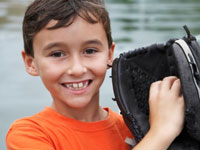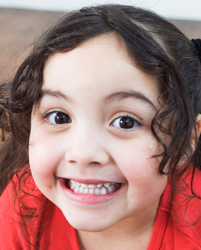Local Dental Care - Michigan A Tooth Doctor For Kids
Grand River Dental Care
Appointments: (517) 546-7211

Wayne Nelson
Grand River Dental Care
2700 West Grand River Avenue
Howell, MI 48843






Have you ever considered natural-looking, permanent dental implants instead of uncomfortable dentures? Incredible recent advances in technology allow Howell area dental implants dentist Dr. Wayne Nelson to create tooth implants just for you that can be permanently anchored to your jaw. This is a great option to consider if you've had negative experiences with dentures in the past.
Wayne Nelson, , in the Howell area accepts Delta Dental® insurance. Our experienced team at Grand River Dental Care will file your insurance claim for you.
We want your dental treatment to be affordable for you. We're committed to helping you maintain your life-long oral health.
At Grand River Dental Care we aim to maximize your insurance benefits and make any remaining balance easily affordable. Howell area dentist Dr. Wayne Nelson and his knowledgeable staff can help answer any of your insurance questions.
We accept most insurance carriers. Please check with us prior to your appointment, but it's safe to say we likely accept the type of insurance you carry.
If you're facing oral surgery or tooth extractions, you need reassurance and information from a trusted professional. Let Howell area dentist Dr. Wayne Nelson and his friendly staff put your mind at ease. Let us explain how your procedure can be conducted safely, quickly, and comfortably.
New and safe sedation dentistry with Howell area sedation dentist Dr. Wayne Nelson means you can have years of dental treatments done quickly while you're lightly sedated, with little or no discomfort. If you've been putting up with discomfort, hiding your smile, or delaying scheduling dental work because you're too busy, your life is about to change. Make a sedation dentistry consultation appointment today with Dr. Nelson.




Drs. Jeffrey and Stephanie Jaghab & Associates
Appointments: (248) 349-2750

Jeffrey Jaghab D.D.S.
Drs. Jeffrey and Stephanie Jaghab & Associates
416 South Main Street
Northville, MI 48167





More Children's Dentists in the Northville, MI Area Near You
Michael J Fischer D.D.S.
3579 Henry St Ste 110
Muskegon, MI, 49441
(231) 739-8889
American Dental Care Pllc
947 Leonard St Nw
Grand Rapids, MI, 49504
(616) 774-9402
Doctor - Activate Your Free 1stPediatricDentist Directory Listing
Mark S Glovis D.D.S.
1580 Oak St
Wyandotte, MI, 48192
(734) 285-2510
Grand Haven Family Dentistry
919 S Beechtree St Ste 7
Grand Haven, MI, 49417
(616) 844-4400



